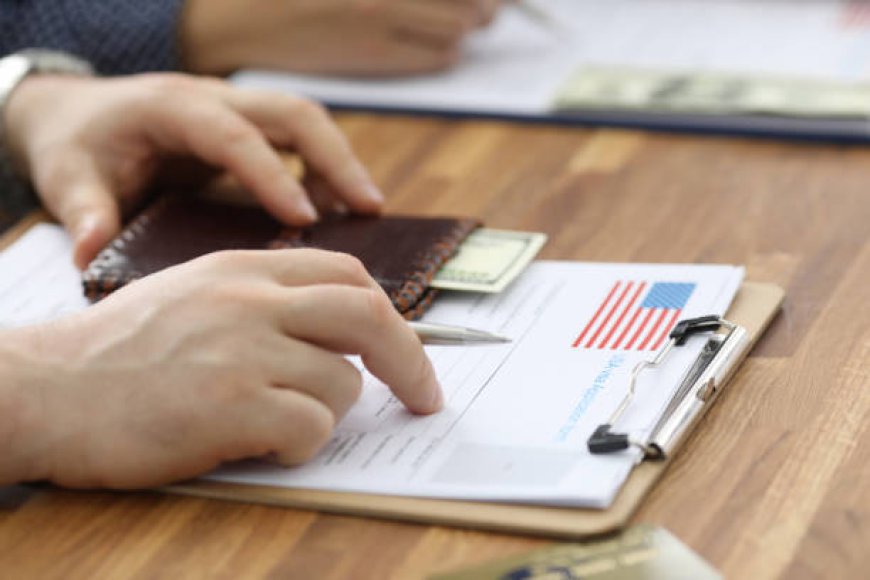Common Mistakes to Avoid When Applying for a US Tourist Visa
Avoid common pitfalls when applying for a US tourist visa. Learn essential tips to enhance your application success and avoid delays or denials.

Applying for a US tourist visa can be a detailed process, and mistakes can lead to delays or rejection. Inaccurate information, along with missing documents and misunderstandings regarding visa requirements, can significantly impact your application. Consequently, it is crucial to ensure that all details are correct and that you have the necessary documentation. Being aware of these common mistakes can save you time and frustration.
In this guide, we’ll highlight the key pitfalls to avoid when applying for a US tourist visa. Each step of the application process requires careful attention, from ensuring accurate personal details to properly preparing for your visa interview. Avoiding these common mistakes improves your chances of a successful application and makes your travel to the United States as smooth as possible.
Here are some common mistakes to avoid when applying for a US tourist visa.
Giving false information: Inaccurate information entered on the US visa application form is one of the most frequent errors people make. This includes misspellings of the applicant's name, incorrect birthdates, wrong travel dates, or a mismatched passport number. This is an important piece of information on a visa application form, and providing false information can have serious consequences.
Not Adhering to Photographic Guidelines: Applicants must meet certain photo requirements as part of the US visa application process. Your visa application may be denied if you don't follow the requirements for photo size, background, and quality. Consequently, it’s crucial to always use a current photo that accurately captures your appearance when applying for a visa. Additionally, ensuring that your photo meets these specifications can, in fact, significantly improve your chances of approval.
Providing Financial Documents That Are Not Complete: Candidates must demonstrate adequate funds for their trip. Specifically, this includes coverage for lodging, meals, travel, and health insurance. Moreover, unclear or insufficient financial documents, such as low bank statements, may suggest an attempt to rely on unauthorized work to support their stay in the U.S.
Misrepresenting the Visit's Objective: Many applicants unintentionally provide inaccurate information about their travel motivations, which can lead to problems. The B1/B2 visa is intended for travel, family or friend visits, and business conference or meeting attendance. The visa may be denied if the consulate believes the applicant intends to look for employment, pursue education, or immigrate. It is crucial to clearly state the purpose of your visit and to have the supporting documentation.
Not Having Close Relationships with India: A key part of the tourist visa application is demonstrating your ties to India. You need to show that you plan to return after your trip. As a result, people who don't provide enough evidence of this often have their visa applications denied because it is assumed they will overstay. Examples of ties include property ownership, stable employment, family responsibilities, and other situations that compel the applicant to return home.
Not Being Truthful About Prior Visa Denials: In an effort to boost their chances, applicants usually try to hide previous visa denials. However, all visa information is accessible to the US consulate. Consequently, giving false information about prior denials can lead not only to application rejection but also to a permanent ban on applying for US visas.
Conclusion
Applying for a US visa requires careful attention to detail and thorough preparation. Common mistakes like providing incomplete information, submitting incorrect documents, or being unprepared for the visa interview can lead to delays or rejection. Ensuring that you meet all the requirements and carefully follow the application process is crucial for a smooth experience.
By avoiding these common mistakes, you can significantly improve your chances of obtaining a US visa. First, stay organized; next, double-check your application for accuracy; finally, be honest throughout the process. Ultimately, these precautions will save time, improve your chances of a successful application, and allow you to focus confidently on your upcoming U.S. visit.
It’s also beneficial to gather supporting documents that reinforce your application. This may include proof of employment, financial stability, or ties to your home country. Having these documents ready can help demonstrate your intent to return after your trip. Additionally, consider consulting with professionals or individuals who have successfully navigated the visa process to gain insights and tips that can further enhance your application.
Lastly, prepare for the visa interview by practicing common questions and answers. Be clear about your travel plans, intentions, and any relevant personal details. A confident and well-prepared demeanor during the interview can make a positive impression on the consular officer. Remember, thorough preparation not only boosts your confidence but also plays a significant role in the overall success of your visa application.
In addition to preparation, understanding the specific requirements for the type of visa you are applying for is essential. Different visa categories have unique criteria, such as the duration of stay, purpose of travel, and eligibility. Familiarizing yourself with these details can help you tailor your application effectively and avoid unnecessary complications during the process.
Finally, be aware of the timelines involved in the visa application process. Applying well in advance of your intended travel date can alleviate stress and provide ample time to address any unforeseen issues that may arise. Consulate processing times can vary, so checking the current wait times for visa interviews and approvals will help you plan your travel schedule more effectively. By staying informed and proactive, you can navigate the visa application process with greater ease.
Also Check Out: Thailand Visa

 jamesdavid123
jamesdavid123